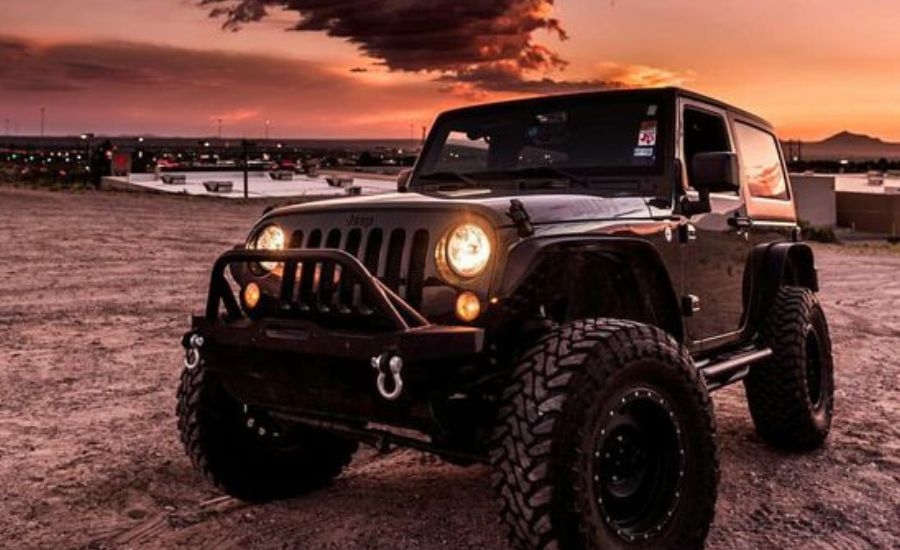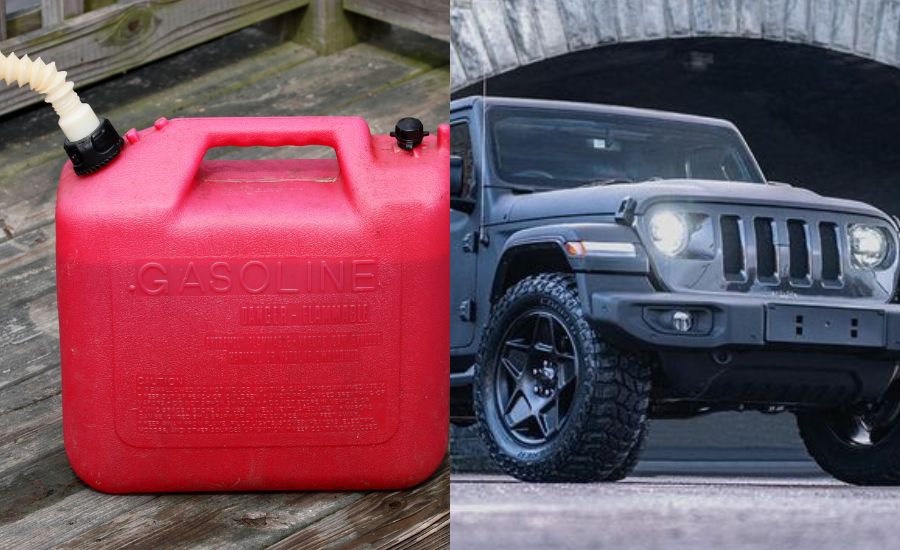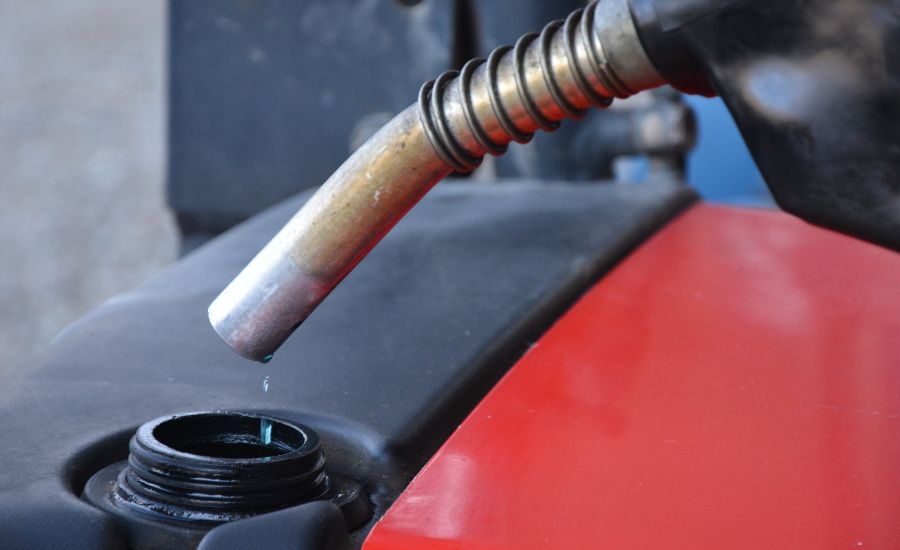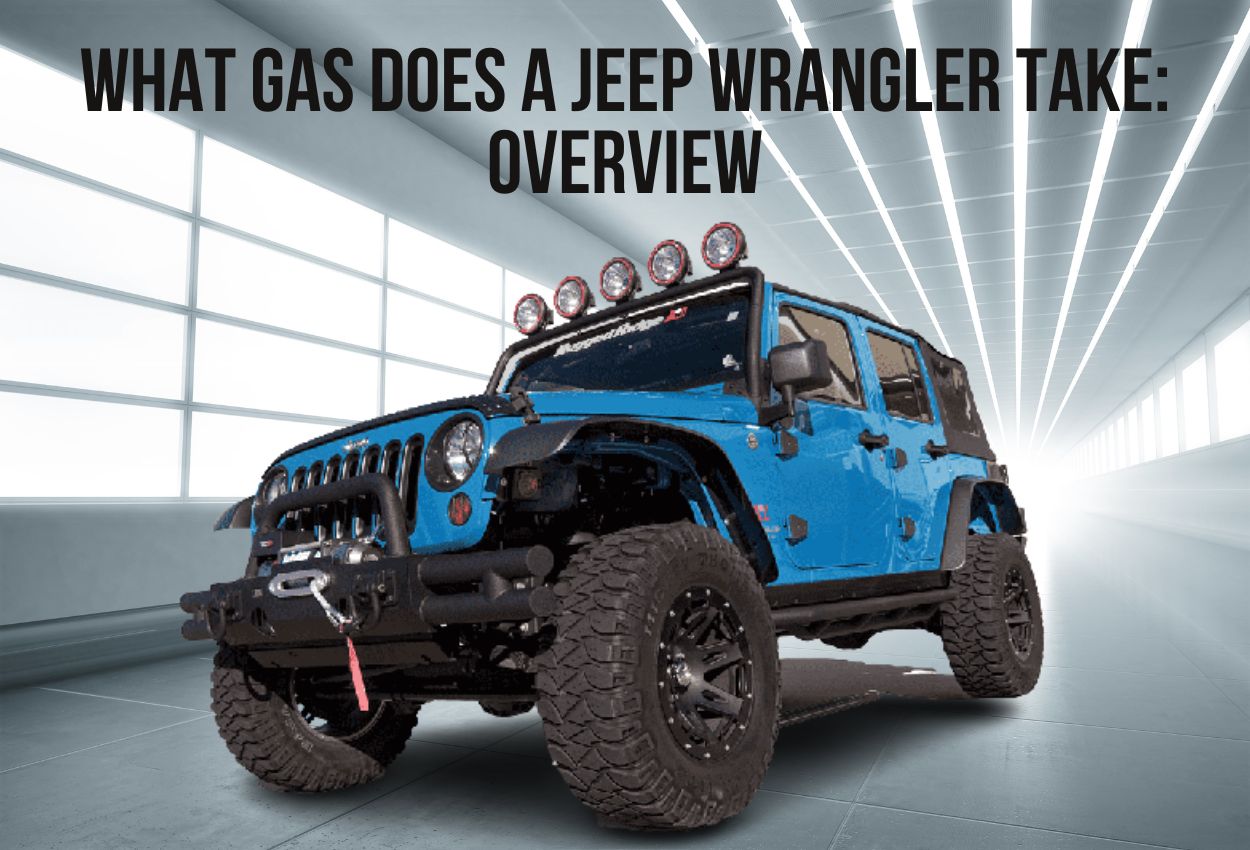What kind of gas does a Jeep Wrangler require? It’s quite normal to have a lot of inquiries about Jeep Wranglers and their capabilities. In this article, we’ll examine which Jeep Wrangler gas type is better off.

Contents
Jeep Wrangler gas type
Internal combustion engines that use spark ignition require regular unleaded gas, sometimes known as regular gasoline, which is a transparent liquid made from petroleum. Approximately thirty distinct compounds are commonly included in regular gasoline.
The model and year of manufacture of Jeep Wranglers determine the gas type.
Understanding about what Jeep Wrangler gas type is crucial because there are various kinds available. Let’s specifically examine them below.
Regular unleaded gasoline (87-octane rating)
All Jeep Wranglers can run on regular unleaded gasoline, which is the most typical Jeep Wrangler gas type. The manufacturer recommends using this Jeep Wrangler gas type (regular unleaded gasoline) since it runs without any issues.
Mid-grade unleaded gasoline (89-octane rating)
Plus gas is a different name for this gas type, which has a higher octane rating than regular unleaded gasoline. Although it is not a necessity, it can be utilized by Jeep Wranglers. It is not specified by the manufacturer to use this gas type in Jeep Wranglers.
Ethanol blends
This fuel is a mixture of regular gasoline and ethanol up to 85%. It may be considered for Jeep Wranglers that support flex fuel. As a result, the Jeep Wrangler may operate on either gas, E85, or a combination of the two.
Reformulated gasoline
In comparison to regular gasoline, it is intended to lower emissions. You are required to utilize this gas type in certain American cities. When possible, the Jeep recommends using this Jeep Wrangler gas type.
Diesel fuel
A 3.0L V6 diesel engine additionally serves as a possibility for Jeep Wranglers manufactured from 2020. There are many Jeep Wranglers that are capable of operating on diesel in addition to regular gasoline.
Although this gas type is less frequent in the US, certain Jeep Wrangler depends on it.
Diesel fuel is manufactured from petroleum that contains more energy than regular gasoline. A diesel engine is more effective than a gasoline engine, which is one of their advantages. A diesel engine is renowned for lasting a very long time.
Gasoline with additives
Gasoline typically contains several additives that help to improve fuel economy. Ethanol is the most widely used ingredient. Ethanol is produced from plants, such as corn. Although not required, it could be utilized.
Starting and driving issues, damage to important fuel system components, emissions that are beyond the legal limit, and the lighting of the “Malfunction Indicator Light” (MIL) are all possible effects of these blends. It must be made very apparent in gas stations if fuel consists of over ten percent ethanol.

The Jeep Wrangler doesn’t need premium gas, although utilizing premium gasoline enhances engine productivity and effectiveness. When driving a Jeep Wrangler for either personal or professional reasons, regular gasoline consumption is a constant worry.
Any effort to increase fuel efficacy tends to be worthwhile because petrol prices can mount rapidly.
Since premium gasoline burns more cleanly and effectively than regular gasoline, it is a higher octane gas. Premium gasoline causes efficient performance.
Consequently, fuel efficiency and engine productivity both increase. Utilizing premium gasoline has a price. Usually, it costs 10–20 cents extra per gallon compared to regular gasoline. Therefore, you must determine whether the extra expense from the premium gasoline is justified by the gain from better fuel economy.
What fuel capacity does a Jeep Wrangler have?
A Jeep Wrangler is a viable option for various needs. It is widely used for traveling, camping, and adventure and has existed for a long time.
It differs from numerous other cars in that its regular gasoline tanks are smaller. Depending on the number of doors, a Jeep Wrangler has a fuel capacity of 17.5 or 21.5 gallons. Consequently, if you wish to go with plenty of regular unleaded gasoline, you are required to make advance plans.
Various elements that impact fuel performance
It’s critical to comprehend the appropriate Jeep Wrangler gas type, alongside the factors that may have an impact on fuel efficacy. These elements comprise the following list.
Size of engine
Your engine’s size has an immediate impact on how well it uses regular gasoline. Less fuel efficacy is achieved by larger engines because they demand greater amounts of fuel to run. Less powerful and perhaps more fuel-efficient engines are smaller ones. Assess the engine size and how it impacts fuel economy when selecting a Jeep Wrangler.
Driving patterns
Fuel efficacy can be considerably impacted by how you drive. Up to 33% less fuel can be consumed when driving aggressively, which includes fast acceleration and braking.
In addition to wasting fuel, prolonged idling can also reduce fuel economy.
Driving at fast speeds, packing the car too full, and utilizing the air conditioner or other fuel-consuming components are some other practices that might reduce fuel efficacy.
Petrol quality
Gasoline performance depends greatly on gasoline quality. Low-quality fuel may harm engines, reduce fuel efficiency, and provide sluggish acceleration. The location, method of transportation, and storage of the fuel can all affect the quality of the fuel.
To guarantee that the fuel is of high quality, it is critical to purchase premium gasoline from a reliable petrol station.
Temperature and altitude
The fuel economy of the Jeep Wrangler is additionally impacted by altitude and the environment. Engine performance may suffer at higher elevations due to the less dense air.
The fuel economy of the Jeep Wrangler may suffer in colder climates since additional fuel is needed to keep the engines running. However, when it’s warmer outside, an unleaded gasoline engine may necessitate less regular gasoline to operate, making them more fuel-efficient.
Follow the owner’s manual and utilize the suggested regular gas type and octane rating to know what your Jeep Wrangler takes to prevent these problems. Employing a lower octane gas may lead to the destruction of your Jeep Wrangler engine.
How long diesel fuel can be stored
If specific measures are taken to preserve its quality, it may be kept for a long time.
Appropriate containers: Keep diesel fuel in containers that have been certified and are made expressly for keeping fuel. They need to be airtight to keep out moisture and are constructed with materials that are suitable for them.
Frequent inspections: Look for any indications of contamination, including water buildup, silt, or microbiological development, when inspecting the diesel fuel that has been stored. If any problems are found, the proper actions should be done right away to fix them.
Even though diesel fuel has no set expiration date, it is typically advised to store it between six and twelve months to guarantee the best possible quality and efficiency. It can become less ignitable and degrade as time passes, which can have an impact on how well an engine runs.
It should be rotated and used up before being replaced if it needs to be kept for a lengthy period. You may contribute to keeping its integrity by adhering to safe storage procedures and keeping an eye on it.
Maintaining the proper temperature is important to prevent the deterioration of diesel fuel. Additionally, it’s best to stay away from sudden changes in temperature because these can lead to dampness.

FAQ
What gas does a 2017 Jeep Wrangler take?
The 2017 Jeep Wrangler takes Premium unleaded gasoline with an octane rating of 87 or higher, encompassing both ordinary vehicles and limited-production variations. Use the suggested premium fuel to give your Jeep Wrangler the best possible performance and efficiency.
Which gas is better 87, 89 or 93?
Mostly, regular gas has an octane rating of 87, whereas premium gas frequently has a high octane rating of 91 or 93. Higher octane fuels may withstand higher compression levels without detonating. In essence, the risk that a detonation occurs at the incorrect time decreases with an increasing octane rating.
Using premium fuel is not mandatory for the Jeep Wrangler. The car has a 2.0-liter engine that can run on regular gas. However, premium gas is preferred as the Jeep Wrangler gas type. The Jeep Wrangler, nevertheless, only requires regular unleaded gasoline; premium unleaded gasoline boosts the engine performance.
What gas does a 2012 Jeep Wrangler take?
Octane 87 is the standard and advised Jeep Wrangler gas type.
Conclusion
In addition to helping you save money, repairing the fuel system of your Jeep Wrangler positively benefits the environment. You can increase the fuel efficacy of your Jeep Wrangler while experiencing a dependable and cost-effective ride by comprehending the Jeep Wrangler gas type necessary and putting proper fueling and maintenance procedures into practice.
I hope you can now decide on what kind of gas type and octane rating works best for your Jeep Wrangler.


